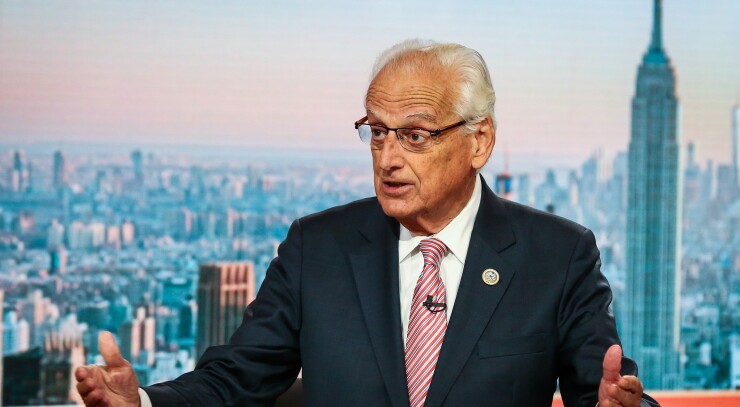The Internal Revenue Service is coming under fire in Congress again, this time for lax oversight of fraudulent charities that applied for tax-exempt status and received approval.
House Ways and Means Oversight Subcommittee chairman Bill Pascrell, D-New Jersey, sent a letter to outgoing IRS Commissioner Chuck Rettig demanding answers to a set of questions prompted by a
“I write today with urgency regarding a recent article stat[ing] that a ‘convicted stock market fraudster’ successfully applied for tax exemptions for 76 phony nonprofit charities, many of which used names almost indistinguishable from well-known nonprofits,” Pascrell wrote in a

Pascrell recently demanded that Rettig be fired over another
Pascrell pointed out that Form 1023-EZ had been developed to deal with the growing backlog of exempt organization applications during the 2013 IRS scandal, but it seems to have led to fraudulent applications being approved with lax oversight by the IRS. The Taxpayer Advocate Service
“Once approved, bogus charities scam unwitting donors who trust IRS-certified 501(c)(3) organizations to be properly vetted and legitimate,” said Pascrell. “The IRS has failed these citizens.”
He asked Rettig to respond to a series of questions, including the number of Form 1023-EZ and 1023 applications received each year since 2015, the number approved by the IRS, the number rejected, the number of applications returned asking for additional information that then provided such information, and the number of returned applications that failed to provide such information.
He also asked the IRS to describe the procedures for processing the 1023-EZ forms, including who reviews the application, the average number of hours to review the application, and the number of days, on average, from receipt to the IRS’s determination of tax-exempt status, and what steps are taken when fraud is suspected.
Pascrell also requested more information about the IRS’s current oversight of the tax-exempt organization application process, and what happens when the IRS is notified about concerns by individuals, the media, law enforcement, state tax agencies or other organizations.





